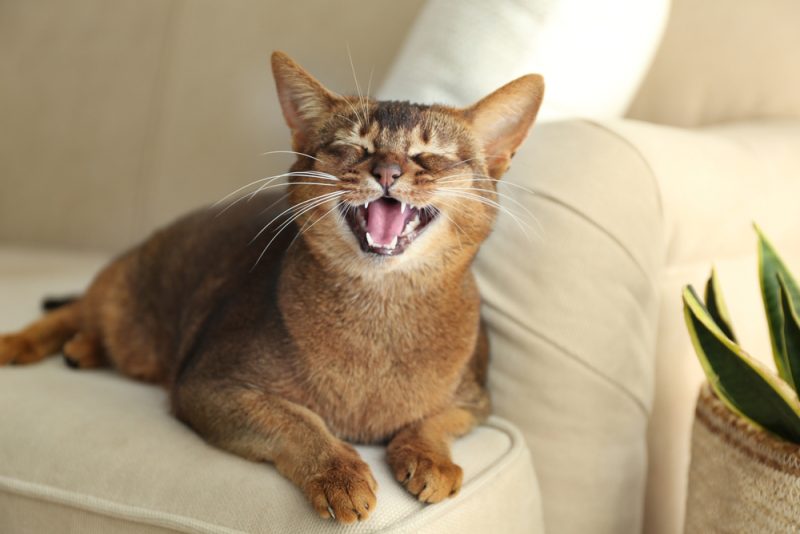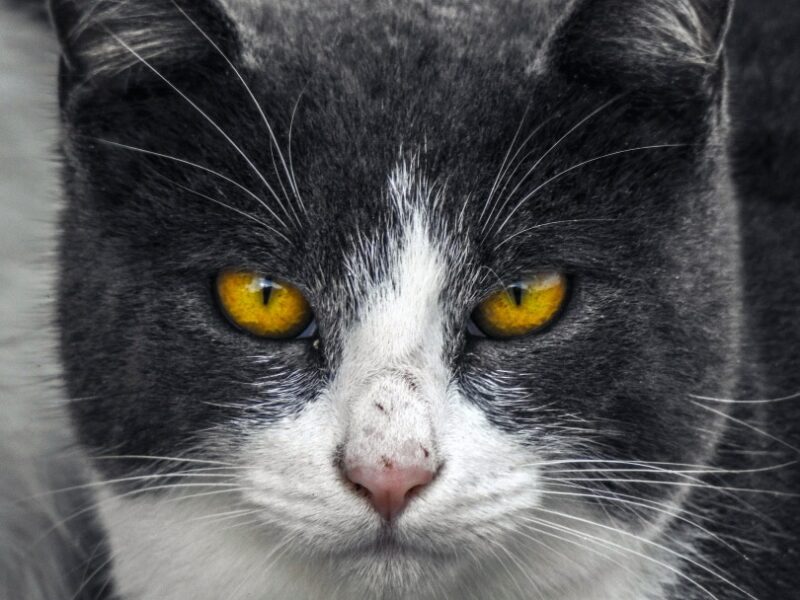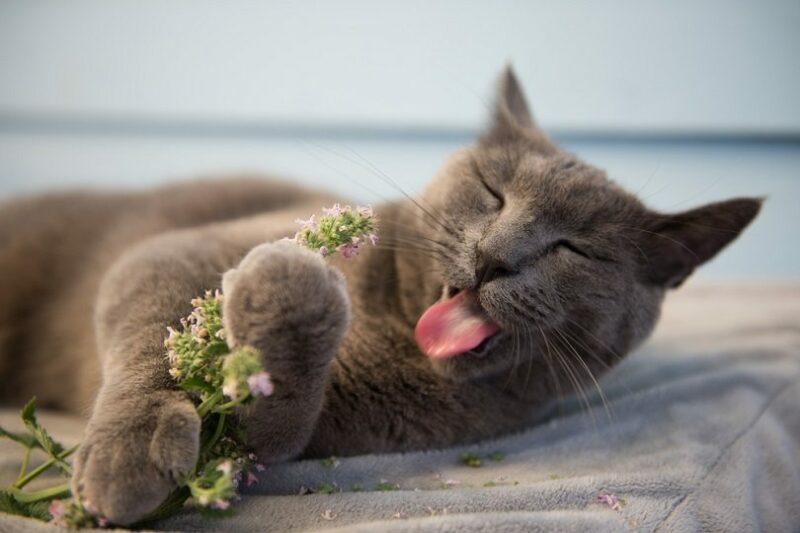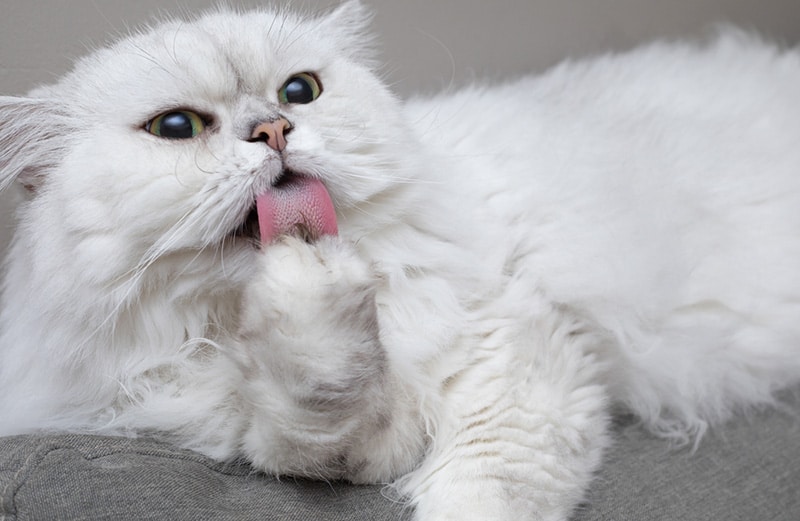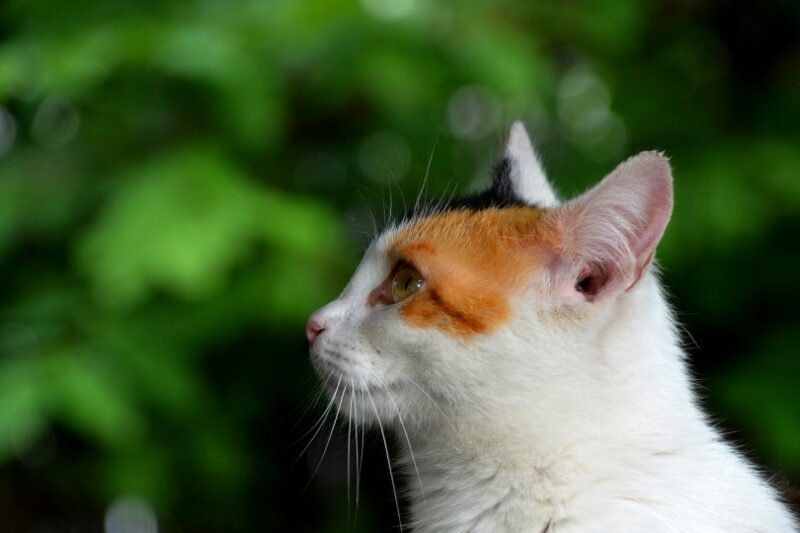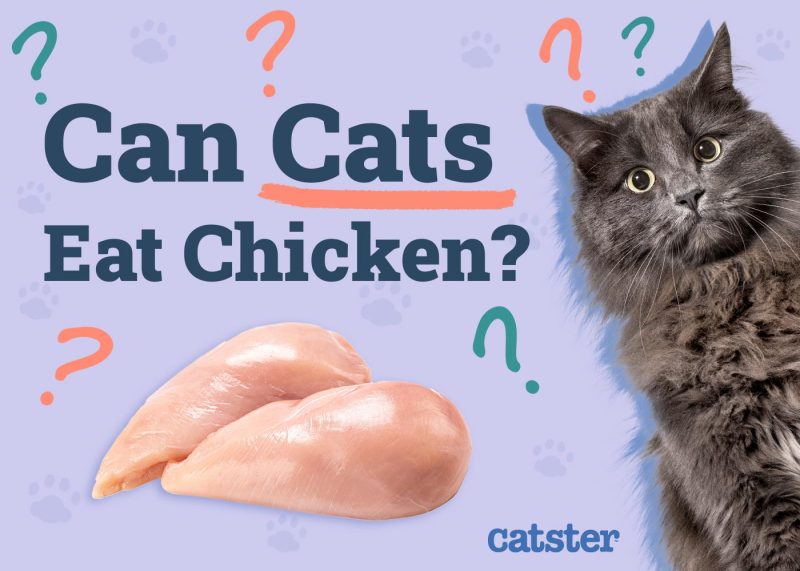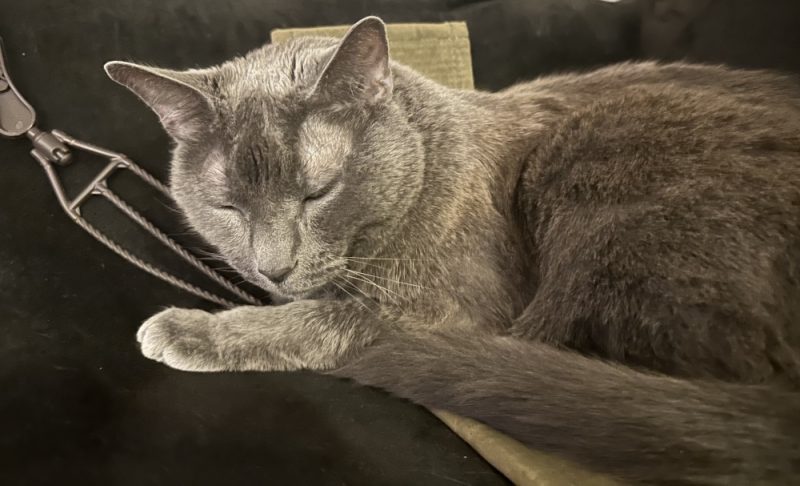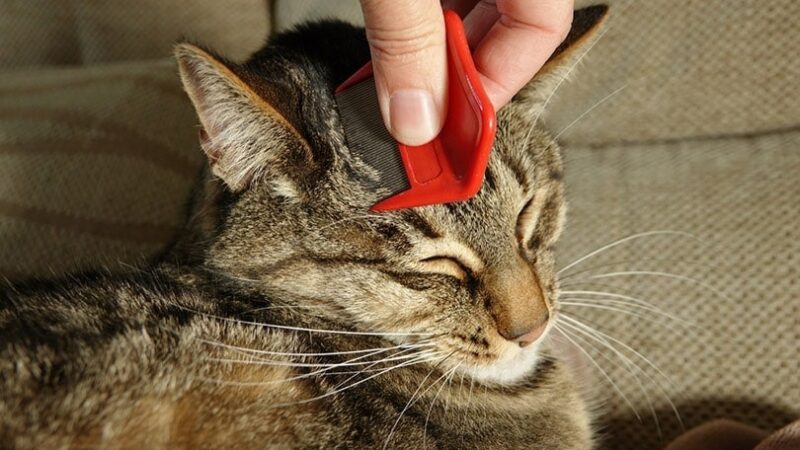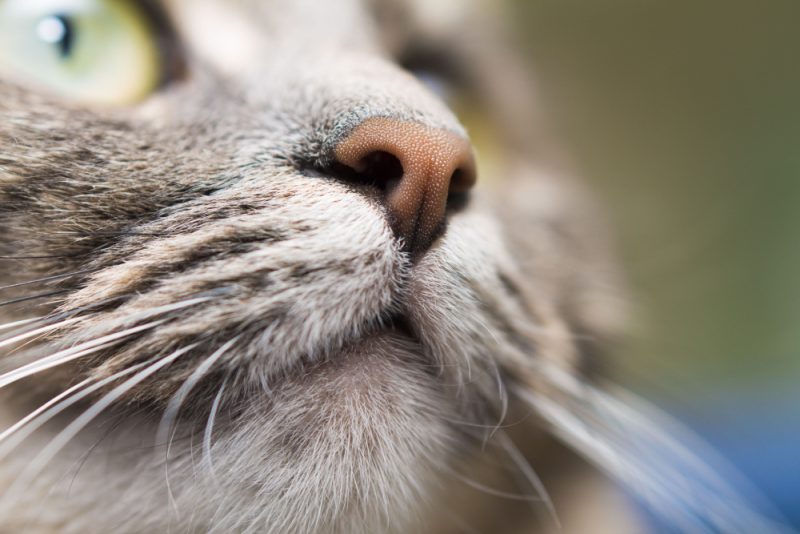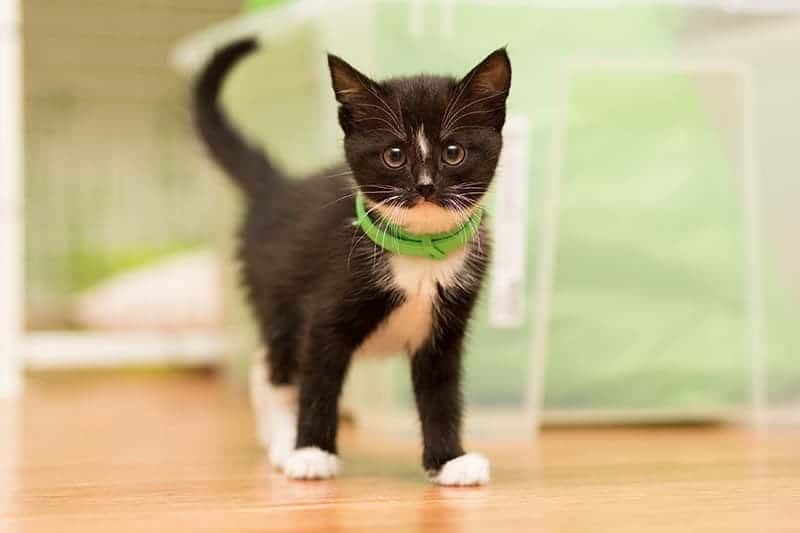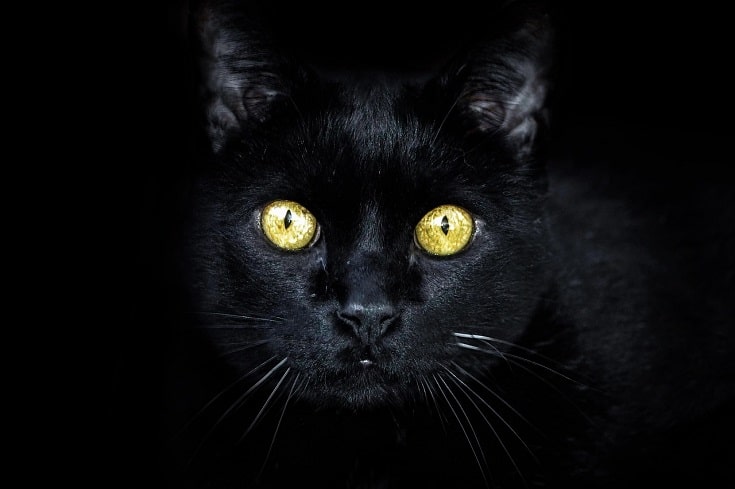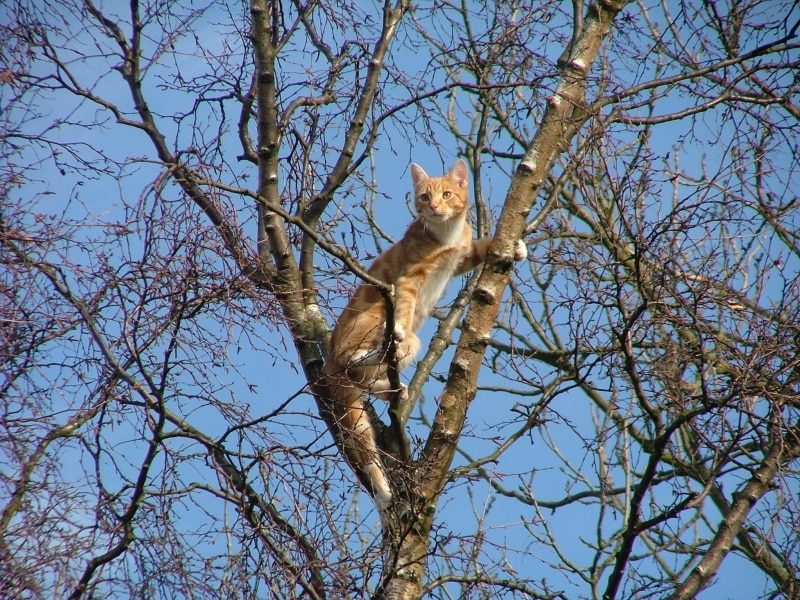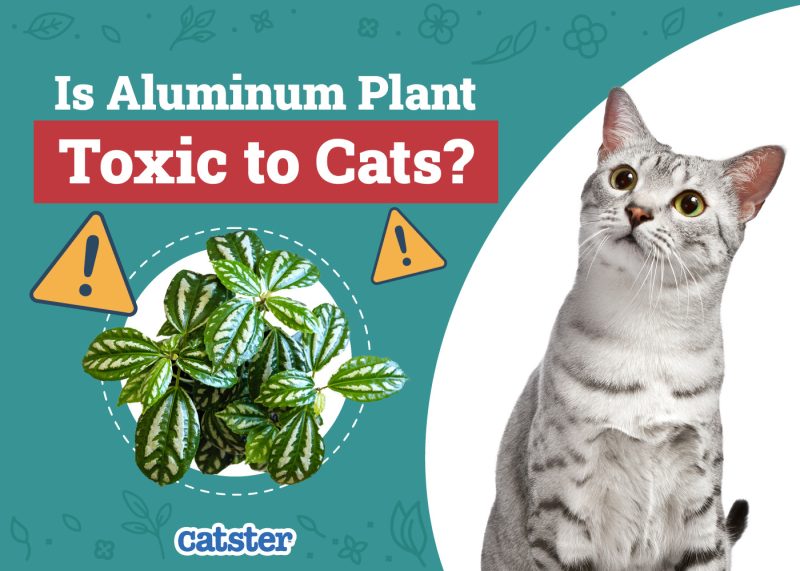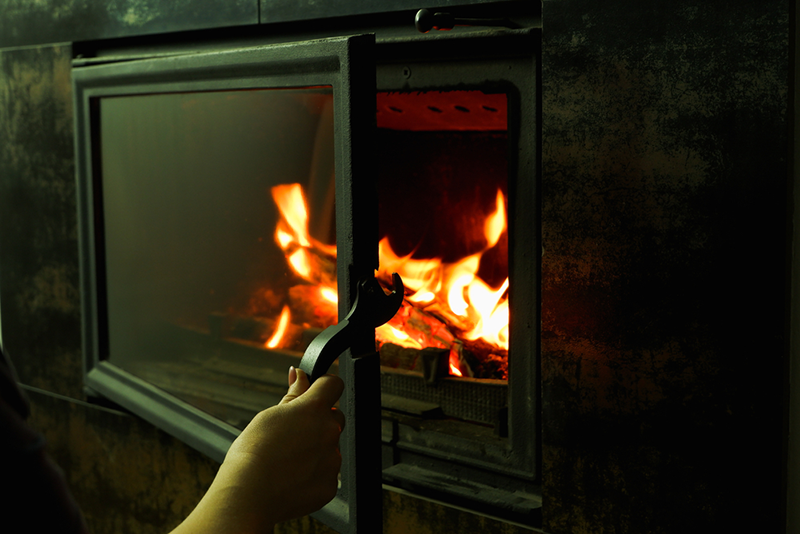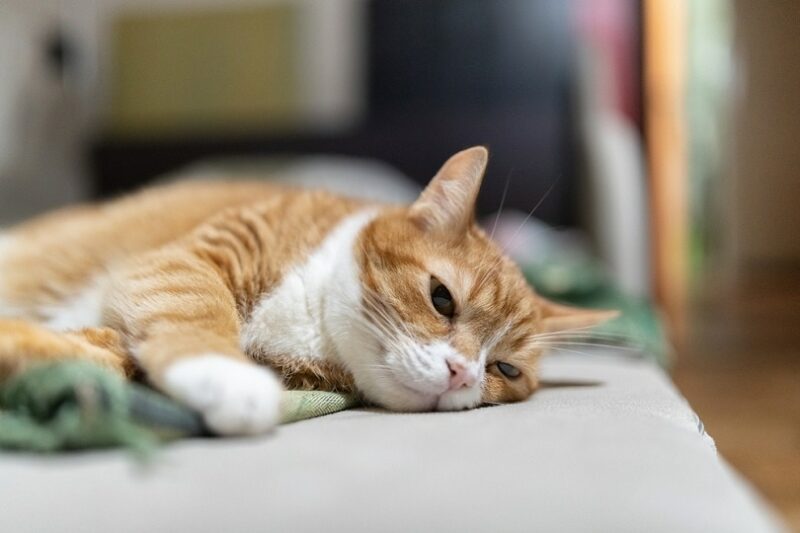As cats age, they may start vocalizing more often. Some cats naturally meow more than others, but if your elderly cat starts meowing much more excessively, it can make you wonder if your cat is experiencing a problem.
Determining the cause of the increased meowing and getting to the root of the problem will help you remedy the situation. Read on to learn about possible reasons that your old cat is meowing so much.

The 10 Reasons Old Cats Meow
1. Dementia / Cognitive Dysfunction Syndrome
Cat dementia, or feline cognitive dysfunction (FCD), is a group of signs and changes in an elderly cat’s brain caused by old age (or more appropriately, oxidative stress). FCD is generally understood as the degeneration of tissues in the brain due in part to oxidative damage, but genetic predisposition also plays a role.
This degeneration causes a reduction in the function of an elderly cat’s brain and a slew of clinical signs, one of which is excessive crying.
- Lack of interest in playing
- Confusion
- Restlessness
- Anxiety and fear
- Crying (particularly at night)
- Changes in the sleep cycle
- Changes in memory and recognition
Confusion, changes in memory, and fear are big reasons your cat might be meowing so much, as they can sometimes forget where they are or who you are, causing them to cry out.
While it’s not a certainty that all cats will get FCD, it’s known that 1/3 of all cats will show a few signs of cognitive decline by the age of 11, and this rises to 50% of cats over the age of 15.
- Diagnosis by a veterinarian is the first action to take if you think your elderly cat is showing signs of FCD.
- Record any instances of excessive vocalizing (alongside other suspicious signs) in a diary or notebook to take with you to the vet visit.
- Once treatment is started (usually a combination of medications and increased vitamin E and antioxidants), the signs of cognitive decline can be improved, but the disease cannot be cured.
- Providing your cat with a predictable routine and mental stimulation can help both you and your cat cope with these brain changes, as well as improve your kitty’s overall quality of life.
- Pheromone therapy, such as feline appeasement pheromones (“happy” smells released by cats when they’re comfortable and relaxed), can help reduce anxiety.
- Playing the radio on low overnight tuned to a talk show can reassure your elderly cat that they’re not alone and improve nighttime yowling.
If you’re concerned about your pet’s well-being, we recommend consulting a veterinarian.
If you need to speak with a vet but can't get to one, head over to PangoVet. It's an online service where you can talk to a vet online and get the advice you need for your pet — all at an affordable price!

2. Losing Their Senses (Sensory Decline)
Sensory decline is another reason your older cat may be crying more, as losing the ability to see, hear, or smell is stressful to a cat. It can be part of the aging and degeneration process, but any suspected changes to your cat’s senses need to be addressed by a vet as soon as possible.
This loss of some or all of the senses can be stressful to cats, as their senses enable them to make sense of the noisy, bright world around them. Cats struggling with sensory decline might be crying to ask for help, as they’re not sure about navigating an area or aren’t sure who is present in a room, making them feel unsafe.
- Excessive vocalizing
- Having toileting accidents in the house
- Being unresponsive to calling their name
- Sleeping lots
- Disorientation
- Once a vet diagnoses FCD, medication to improve brain function can be given.
- Predictability and routine are essential, making for calmer, happier (and less noisy) cats.
- Offer your cat a comfy bed that’s padded and warm, and potentially use nightlights in your home to help your cat better navigate in the dark if they have vision problems.
3. Hypertension (High Blood Pressure)
High blood pressure (or hypertension) is commonly seen in older and geriatric cats. Current studies show that the most common ages for a cat to be diagnosed with hypertension are between 13 and 15 years old.
Hypertension can appear as a complication of other medical conditions, including kidney disease and hyperthyroidism, and as a primary problem, with no other disease associated.
- Sight loss due to detachment of the retina
- Neurological signs, such as disorientation, seizures, and lack of balance
- Behavioral changes, such as excessive meowing
- Diagnosis at a vet’s office is important, as high blood pressure can cause damage to target organs if not treated, such as the kidneys, heart, brain, and eyes.
- Medications prescribed by the vet can help reduce blood pressure and improve clinical signs.
- Once blood pressure begins to lower and stabilize, generally, behavioral problems like meowing will resolve.
- Plenty of tender loving care during this time will help reassure and comfort your cat.
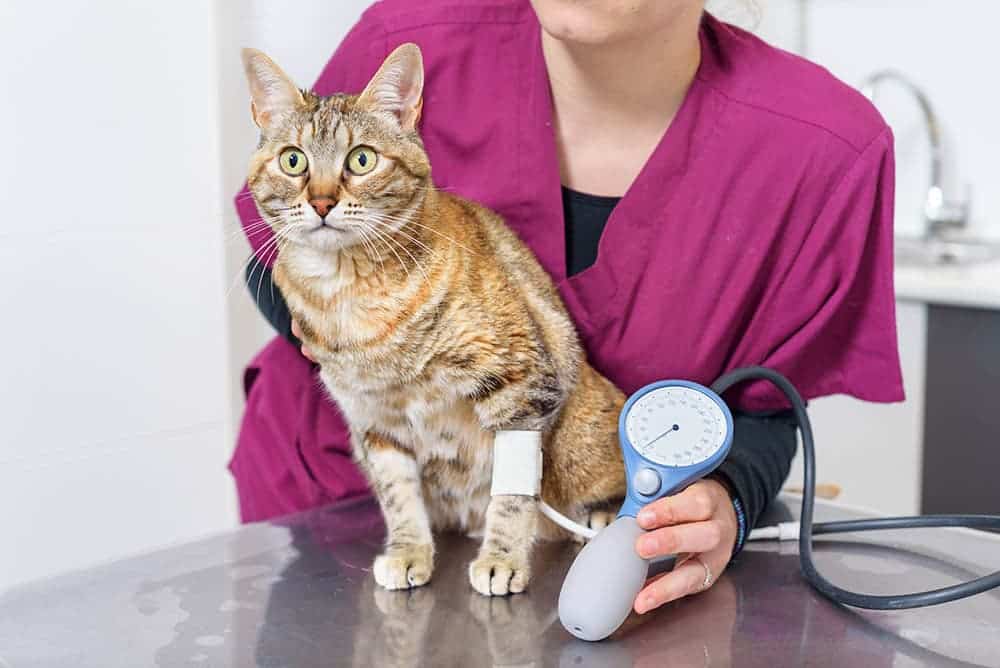
4. Hyperthyroidism
Hyperthyroidism is a common illness in middle-age and elderly cats, with estimations that over 10% of cats over 10 years of age will develop the disease. Hyperthyroidism is a problem with the thyroid gland, a small butterfly-shaped gland in the front of the neck.
This gland produces too many hormones (thyroid hormones) that change the metabolism in the cat’s body, leading to damage to organs, increased blood pressure, and heart problems if not treated. This issue is usually caused by a benign (non-cancerous) growth on the cat’s thyroid gland, and while the signs can be subtle and take a while to show, they often mimic signs of old age in cats.
- Weight loss
- Increased appetite
- Behavioral changes, including excessive vocalizations
- Vomiting and diarrhea
- Once your cat has been diagnosed with hyperthyroidism at a veterinarian’s office, there are a few ways to treat the disease. Surgery to remove all or part of the thyroid and treatment with radioactive iodine, medication, and a change in diet are all choices of treatment, with medication being the most commonly prescribed.
- Keeping on top of your cat’s treatment is the best thing you can do to reduce their crying if it’s caused by hyperthyroidism, as the signs often quickly resolve, and your old cat will feel much better.
5. Arthritis / Joint Pain
Degeneration of the joints is a common problem in elderly cats that can cause great pain and discomfort. It can affect any joint but it is seen more often in the shoulders, elbows, hips, knees, and ankles, which causes a slow or awkward gait and sometimes painful vocalizations as your cat tries to move.
There are usually other behavioral changes seen in cats with joint pain, such as reluctance to walk up and down stairs, not wanting to jump up or down from furniture, or not wanting to climb into the litter box, causing accidents around the home.
Research shows that more than 80% of cats over the age of 10 suffer from arthritis or joint degeneration, so the problem is prevalent and causes cats to meow in pain in many cases.
- Pain relief from the vet is the number-one way to resolve painful meowing, along with lots of tender loving care and comfort.
- Adapting your home to make mobility easier for your elderly cat is a great way to reduce their pain (thus reducing their meowing). Adding ramps to furniture, getting a lower-sided litter tray, raising their food and water bowls so they don’t need to bend down, and providing warm, soft areas for your cat to sleep are all ways to keep them comfortable.
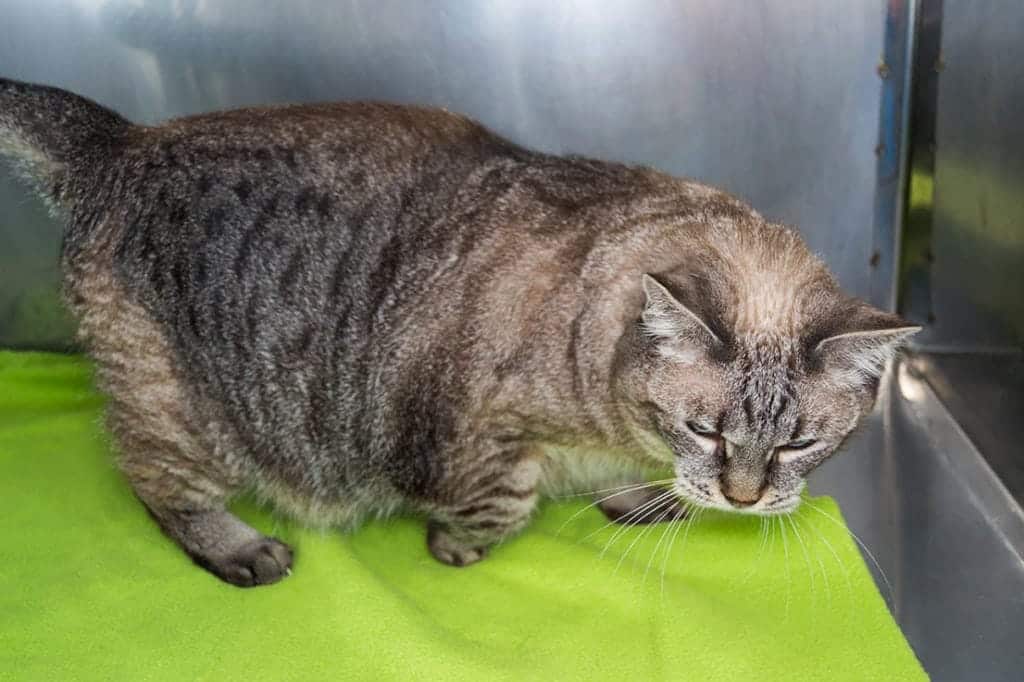
6. Neurological or Central Nervous System Disease
Central nervous system (CNS) diseases can occur in aged cats, and certain neurological conditions can cause behavioral changes, including meowing. Infectious causes of CNS disease include feline infectious peritonitis or toxoplasma infection, which are less common in old cats but can still occur.
Problems in certain areas of the cat’s brain, such as the hypothalamus and hippocampus, have been linked to excessive vocalizations. Brain tumors may also occur, causing the affected cat to develop signs gradually over time. One of the most common signs is behavioral changes, such as excessive crying, coordination problems, pain, seizures, and different pupil sizes.
- Neurological problems need to be seen by a vet straight away, as issues like brain tumors can become deadly very quickly.
- The vet will run diagnostic tests and create a treatment plan based on the diagnosis. The plan may include medication or surgery.
- Keep things your cat frequently uses within easy reach of them, such as their food and water bowl and their litter tray, so they don’t have trouble reaching it, and create a safe space for them (such as a soft bed or a cardboard box) that they can relax in at night.
7. Attention
Sometimes, elderly cats just need some attention and love from their owners and will croakily meow to get it. They may be hoping to get some social interaction or food. Constant or excessive meowing can be frustrating, but try to remember that you’re the person whom your old cat will look to for comfort and reassurance or for help if they have a problem.
Cats can get lonely, bored, or even afraid, particularly ones suffering from cognitive decline, so they may try to get your attention in one of the only ways they know how: by using their voice.
- It’s best to investigate the cause of the attention-seeking meowing, as there may be a problem you haven’t spotted yet, as cats are very good at hiding problems or pain from people.
- Keep in mind that your cat may just want to spend time with you, so dedicating some time to play with them and give them your undivided attention will do wonders and let them know that you love them.
- Stroking and gently talking to your old cat can reassure them that you’re paying attention.
- If you’re busy at the time, reassure them that you can hear them by talking softly and stopping to stroke them.
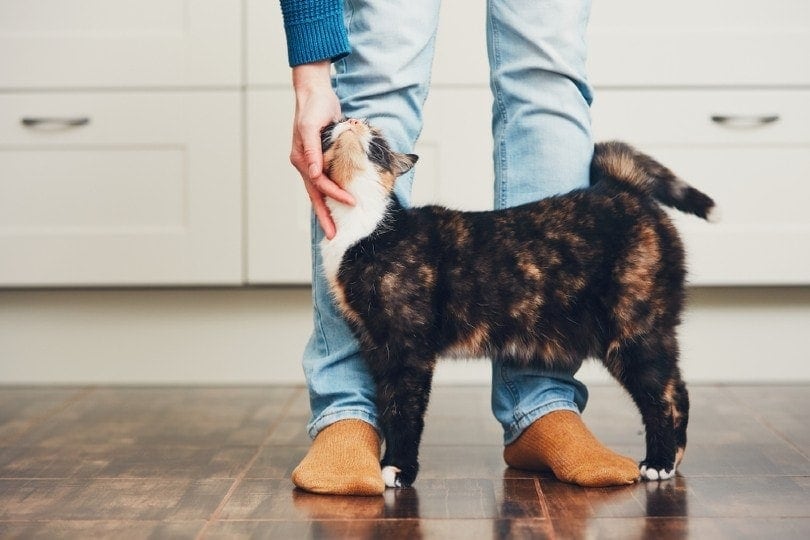
8. Stress
Old cats, like young cats, can suffer from stress that can cause them to meow. Some of their stress can be caused by dementia / cognitive decline, but some can be caused by changes in routine or changes around the home, such as the introduction of a new pet or baby to the household.
Older cats may deal with stress less effectively than younger cats, as they’re generally less tolerant of it and can become easily overwhelmed.
- Using pheromone diffusers around the home can help your cat to relax and feel comfortable in their surroundings.
- Lots of love and affection can help reassure your cat that things are okay.
- Resource spreading can help alleviate the tension, such as adding more litter boxes around or giving your old cat a certain room in the house.
- Giving your old cat their own hiding places, such as boxes, can also help them feel more secure.
- Getting back to a normal, calm routine as quickly as possible is one good way to help your elderly cat destress.
9. Dental Problems
Dental disease is prevalent in older cats, with 50% to 90% of cats older than 4 years old having some kind of dental disease, which gets more severe as the cats get older.
Dental problems can cause great pain and can make it impossible to eat, causing your cat to meow in pain.
- Bad breath (halitosis)
- Drooling
- Reluctance to eat
- Pawing at their mouth
- Crying in pain
- Pain relief at a vet is the first step in reducing your cat’s pain and helping them eat, meaning they meow less in pain and out of hunger.
- Specific dental treatment depending on the problem diagnosed by your vet: gingivitis, periodontitis, and tooth resorption.
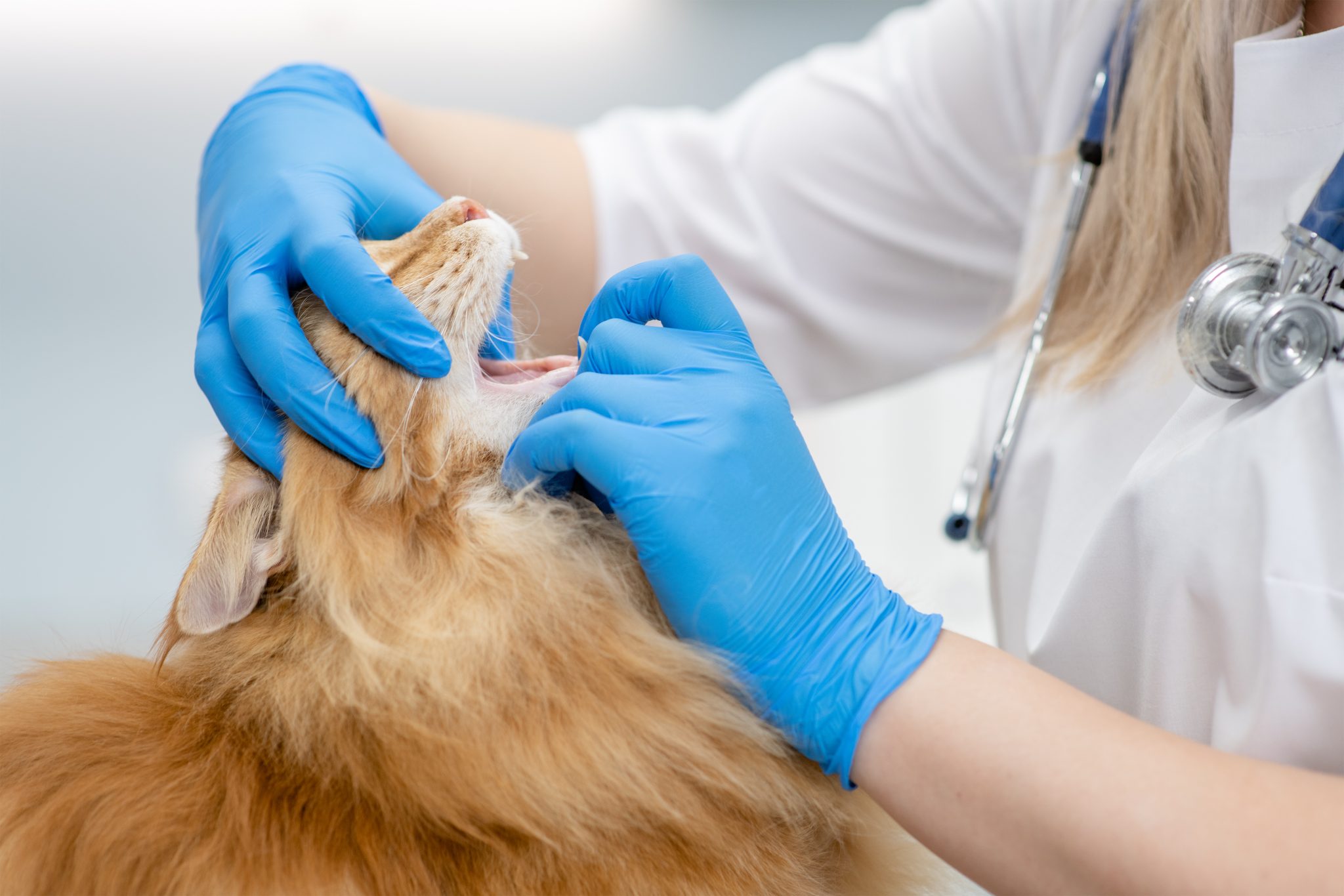
10. Just Being Vocal
Maybe you just adopted an old Siamese and you are very surprised at how chatty they are. Some breeds, such as Siamese, Bobtail, and Bengal cats, are known to be very vocal and will often talk to their owners all day long, but if your cat is usually quiet and suddenly starts to meow frequently or loudly, they should be checked out at the vet to ensure that nothing is wrong.
Some breeds, such as Siamese, Bobtail, and Bengal cats, are known to be very vocal and will often talk to their owners all day long, but if your cat is usually quiet and suddenly starts to meow frequently or loudly, they should be checked out at the vet to ensure that nothing is wrong.
- A certain amount of meowing should be “allowed” or “put up with” because meowing and vocalizing are how your cat communicates, and it’s a natural behavior for them.
- Giving them plenty of attention when you’re home can also help them stay calm and meow less, and a radio left on a talk show when you’re out can help them feel like they are not alone.

At What Age Is a Cat Considered Old?
Due to the average modern cat living longer, a cat is now considered “mature” at 7 years of age (when cognitive decline can start), considered “elderly” at 11 years, and classed as “geriatric” at 15 years and above.
![]()
Conclusion
Old cats are truly wonderful to be around and are often cuddly and calm. They usually take life in the slow lane in their old age, but when your cat is meowing excessively, it can become distressing for both you and your feline friend.
Finding out the cause of your cat’s crying can help you remedy the situation. It’s important to remember that your cat isn’t doing it on purpose and is rather suffering from an underlying health problem or crying in pain or distress. If none of these apply, your cat may just be chatty, and a little extra playtime can help burn off any excess energy they have that they might use for talking!
See Also:
- Why Your Older Cat Is Not Using the Litter Box
- I Just Adopted a Cat and They Won’t Stop Meowing: Vet-Reviewed Causes & Advice
Featured Image Credit: New Africa, Shutterstock
